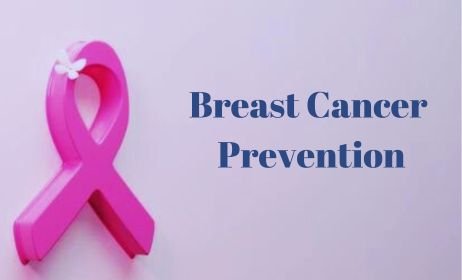
Breast cancer is a disease that develops in the breast cells and progresses in stages. While there’s currently no way to prevent breast cancer entirely, there are several proven risk factors(How to Prevent Breast Cancer) for breast cancer, including factors such as weight and physical activity level, that you can control. This means that it’s possible to reduce your risk of breast cancer through lifestyle changes.
Understanding Breast Cancer
Breast cancer symptoms may go unnoticed until it becomes severe. Some early symptoms may include a new lump in the underarm or in the breast, itching or discharge from the nipples, and skin texture change of the nipple or breast. The exact cause of breast cancer is not known. However, the risk factors include family history, hormonal changes, age (more risk after 40 years of age), personal history of breast cancer, lifestyle, including excess of alcohol consumption, environmental factors, including exposure to radiations, obesity and overweight, menarche: having periods at a younger age and menopause at an older age, pregnancy: Becoming pregnant at an older age or never being pregnant, hormone use, including long-term contraceptive use or postmenopausal Hormone therapy
Prevention Strategies(How to Prevent Breast Cancer)
1. Maintain a Healthy Lifestyle
A healthy lifestyle is the cornerstone of breast cancer prevention. This includes maintaining a healthy weight, staying physically active, and following a nutritious diet
Stay Active: Physical activity has been shown to help reduce the risk of breast cancer. It plays a part in maintaining a healthy weight. Try to get at least 30 minutes of movement every day. Healthy adults are advised to schedule 150 minutes of moderate aerobic activity or 75 minutes of vigorous aerobic activity weekly.
Maintain a Healthy Weight: Obesity and excess weight are risk factors for breast cancer. Achieving or maintaining a healthy weight is the best way to reduce the risks.
Follow a Nutritious Diet: A nutritious diet can do more than help you maintain a healthy weight. The food you eat can also help reduce your risk of breast cancer. Research suggests that a diet high in certain foods can be very beneficial. This includes whole grains, nuts, seeds, and other plant-based proteins, high fiber foods, leafy greens, fruits, cauliflower, broccoli, cabbage, and other cruciferous vegetables.
2. Limit Alcohol and Quit Smoking
It’s safest not to drink alcohol. But if you do drink it, enjoy it in moderation. The more alcohol you have, the greater your risk of getting breast cancer. Some research suggests that smoking tobacco raises the risk of breast cancer.
3. Breastfeed
If you have a baby, breastfeeding might play a role in helping prevent breast cancer. The longer you breastfeed, the greater the protective effect.
4. Limit Hormone Therapy After Menopause
Combination hormone therapy uses estrogen and progestin. It may raise the risk of breast cancer. Talk with your health care professional about the risks and benefits of hormone therapy
Regular Screening
Regular screening is crucial for early detection of breast cancer. Diagnosis involves physical examination, blood tests, and few imaging tests to confirm the condition
Conclusion
While we cannot completely prevent breast cancer, we can certainly take steps to reduce our risk. By maintaining a healthy lifestyle, limiting alcohol, quitting smoking, and getting regular screenings, we can make a significant impact on our breast cancer risk. Remember, early detection is key, so make sure to schedule regular check-ups with your healthcare provider.
Citations:
https://iopscience.iop.org/book/mono/978-0-7503-5709-8/
https://www.healthline.com/health/breast-cancer/prevention-for-breast-cancer
https://tradersblog.semwealth.com/modern-day-golden-calves/
https://www.mayoclinic.org/healthy-lifestyle/womens-health/in-depth/breast-cancer-prevention/art-20044676
https://www.mayoclinic.org/healthy-lifestyle/womens-health/in-depth/breast-cancer-prevention/art-20044676/
https://mcpress.mayoclinic.org/women-health/how-to-reduce-the-risk-of-breast-cancer/
https://drsonday.co.za/breast-cancer/
Bone Cancer Awareness Month: The Latest Research, Early Detection & Expert Care …
When people talk about cancer in India, the focus is mostly on …
Understanding the Risk If you’re a young woman diagnosed with breast cancer …
In today’s fast-paced world, many women delay pregnancy or experience weight gain …
Each year, over 300,000 women around the world are diagnosed with ovarian …
Cancer care in 2025 is not what it was even five years …

